Decentralized Finance
Where money meets math, DeFi lets you access financial services directly, without banks or middlemen.

Wallet Wisdom
Explore the different types of crypto wallets, the importance of private keys, and how to securely store and manage your crypto holdings.
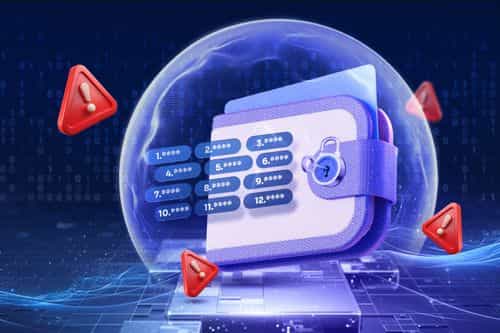
What to Do if Losing Access to Your Crypto Wallet?
Losing access to a crypto wallet is often treated as a simple “password reset” problem, yet a different failure mode is usually encountered: the wallet is not an account, but a key-control system. When the key material is missing, access may be lost even though funds remain visible on-chain, and recovery options become constrained by custody model, device state, and backup hygiene. It is also worth noting that cross-chain usage (DEX aggregator swaps, on-chain bridges, allowance approvals) can add investigative surface area when access is interrupted mid-flow. The correct next action is frequently determined by small details that are easy to miss in the full article below.

Top DeFi Wallets in 2025
In 2025, attention has shifted from raw speculation to infrastructure, and DeFi wallets sit at the center of that shift. Lists of top defi wallets 2025 increasingly focus on how safely on-chain activity is handled rather than on simple token storage. In most defi wallet reviews 2025, differences are now recorded in terms of security design, multi-chain coverage, and daily usability rather than marketing claims. It may be tempting to assume that the “best” wallet is universal, yet a different pattern is observed: conditions, networks, and risk tolerance strongly shape which tools feel workable. For a grounded comparison of defi wallets and a clearer sense of how to choose a defi wallet 2025, the full article below can be read end-to-end.

2025 Most Secure Crypto Wallet
In 2025, the cryptocurrency landscape is more dynamic, and more dangerous, than ever. As adoption hits record highs, cybercriminals are matching the pace with increasingly sophisticated attacks. Your crypto wallet is no longer just a place to store coins, it’s your digital vault, and choosing the right one can mean the difference between safeguarding your wealth or losing it in seconds. This guide explores the most secure crypto wallet apps of 2025, comparing wallet types, highlighting must-have security features, and recommending top options based on independent audits, real-world performance, and expert advice.

Crypto Wallets; Core Technology on Blockchains
In the rapidly evolving world of digital finance, understanding the synergy between crypto wallets and blockchain technology is essential. These two components form the backbone of decentralized finance (DeFi), enabling secure storage, transfer, and management of digital assets. This article delves into their interconnected roles, highlighting how they collectively empower users in the digital economy.

Multi-Chain DeFi Wallets
In the rapidly evolving world of blockchain and decentralized finance (DeFi), managing digital assets securely and efficiently has become more important than ever. As the crypto space grows increasingly diverse with hundreds of blockchain networks and thousands of tokens, users face challenges related to interoperability, usability, and asset management. Multi-chain DeFi wallets have emerged as a cutting-edge solution to this problem. These wallets provide the ability to interact with various blockchain networks through a single, unified interface. This level of integration not only simplifies the user experience but also expands the possibilities for financial transactions and applications in the DeFi ecosystem.

MetaMask, Preferred Wallet for DeFi Users
MetaMask has become the go-to wallet for decentralized finance (DeFi) users, offering a secure and user-friendly way to manage crypto assets and interact with decentralized applications (dApps). With multi-network support, top-notch security, and a focus on privacy, MetaMask empowers users to navigate the world of DeFi with ease. This article explores why MetaMask is the preferred choice for DeFi enthusiasts and how it continues to evolve to meet the needs of its growing community.

Cold Crypto Wallet vs. Hot Wallets
Choosing the right crypto wallet can be a game-changer for the security of your digital assets. With the variety of wallet types on the market, the big question remains: Which one offers better protection? In this article, we’ll explore both wallet types in detail and help you make an informed decision.

Choosing the Right Crypto Wallet
As the crypto world continues to expand, choosing the right wallet is one of the first and most important steps you'll take. A crypto wallet isn’t just a place to store your digital assets—it’s your gateway to DeFi, bridging, staking, and beyond. But with so many options available, from mobile apps to hardware devices, picking the best one for your needs can feel overwhelming. This guide breaks down everything you need to know to make an informed decision.

Setting Up Your First DeFi Wallet
Decentralized Finance (DeFi) has transformed finance by eliminating third-parties. To interact with DeFi platforms, you need a DeFi wallet—a secure gateway to managing and using your digital assets. Understanding how to set up and handle your wallet properly is essential for keeping your funds safe; this guide will walk you through the arrangement process.
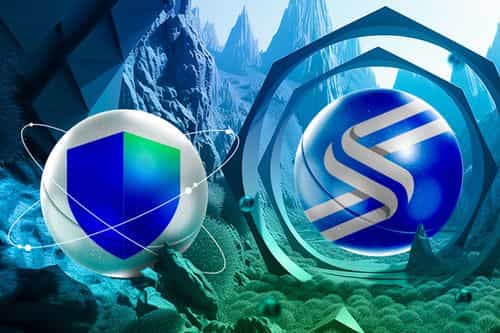
Connecting Trust Wallet to DeFi Platforms
Connecting your cryptocurrency wallet to DeFi platforms and decentralized exchanges (DEXs) is crucial for accessing diverse profitable financial opportunities. One of the most trusted wallets for this is Trust Wallet, a multi-chain wallet that offers ideal connectivity to DeFi platforms, cross-chain exchanges, and dApps. This guide will walk you through how to use Trust Wallet effectively to engage with decentralized exchanges, bridge assets, and benefit from the DeFi ecosystem securely.

Metamask wallet features guide
MetaMask is one of the most popular self-custody cryptocurrency digital wallets, offering a secure, decentralized, and user-friendly way to handle your digital Ethereum-based assets while enabling smooth interaction with dApps. Metamask has diverse features that learning the main ones help you manage your crypto better. You have full control over your assets when using a self-custody multichain wallet like Metamask.
Protocol Deep Dives
Gain in-depth knowledge of the top decentralized finance (DeFi) protocols, platforms, and tools shaping the future of finance.

The Rise of Cross-Chain Aggregators for Traders
By late 2025, liquidity in crypto markets is no longer concentrated on a handful of networks. It is fragmented across L1s, L2s, and non-EVM ecosystems in a way that makes “just bridge and swap” an expensive and error-prone habit. A cross-chain trade is rarely a single action anymore. It is usually a sequence of source-chain execution, bridging, and destination-chain settlement, each with its own fees, latency, and failure modes. Cross-chain aggregators have emerged as the layer that compresses this multi-step process into a single routed flow. Their role is not merely to simplify the interface, but to optimize execution across chains while managing slippage, cost, and partial failure. Treating them as UI conveniences misses the point. Execution quality depends heavily on route transparency, slippage logic, and refund semantics, which are often hidden behind a single “Confirm” button.
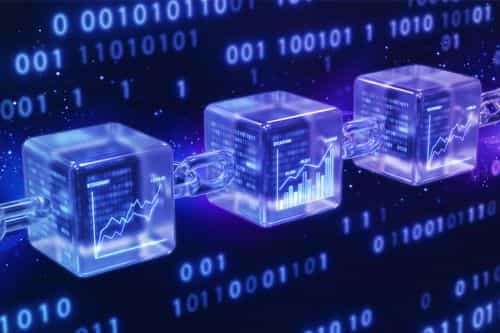
Top On-chain Analysis Data Sources
On-chain analysis has become more central as liquidity has fragmented across venues, activity has shifted between L1s and L2s, and market narratives have increasingly been validated (or invalidated) by observable transaction behavior. It may be tempting to treat on-chain data as inherently objective; however, different data models, attribution methods, and labeling coverage can lead to materially different conclusions. More reliable on-chain data insights are usually produced when a platform’s methodology is understood, its scope is matched to the question being asked, and outputs are validated through small, reversible checks. The five platforms below are often selected as baseline blockchain data sources because they cover distinct “jobs” in an analysis workflow, from macro network health to wallet-level behavioral traces.
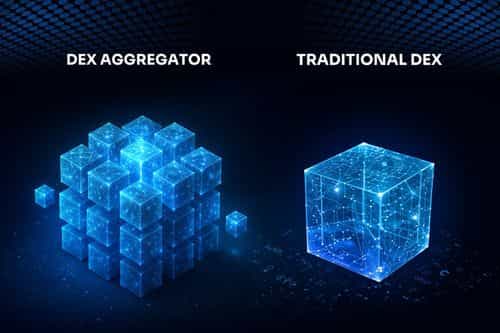
Cross-Chain DEX Aggregators vs. Traditional DEXs
Cross-chain DEX aggregators vs traditional DEXs are increasingly compared as liquidity becomes fragmented across rollups, sidechains, and alternative L1s. It may be tempting to assume that cross-chain tools are simply “larger” versions of single-chain exchanges, yet different behaviors are observed once routing logic, risk surfaces, and recovery paths are examined. As more assets move across heterogeneous networks, differences between cross-chain and traditional DEXs begin to affect execution quality, operational workload, and failure modes. Due to these factors examining the comparison below frequently results in better-defined expectations when organizing actual trades, between chains.
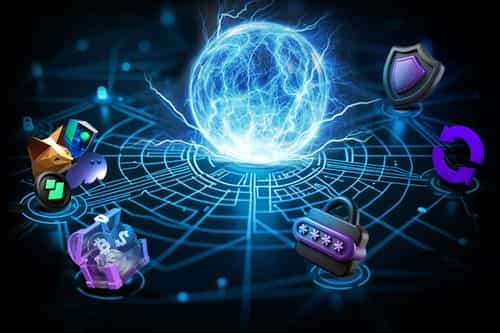
Top Features to Look for a Reliable DEX Aggregator
Decentralized exchange (DEX) aggregators are now used as the default routing layer for many swaps, as fragmented liquidity and volatile fees have made single-DEX trading less predictable. A DEX aggregator (a tool that scans multiple DEXs and liquidity pools to find and execute a swap at the best available terms) is therefore evaluated not only on price, but also on safety, transparency, and reliability. It may be tempting to assume that any interface offering a “best price” banner behaves similarly, yet very different trade-offs are embedded under the hood. For this reason, the best features of DEX aggregators are considered in detail below, and several practical habits for choosing a DEX aggregator are outlined for careful, stepwise adoption.

Why DEX Aggregators Matter in 2025?
In 2025, cryptocurrency trading is more competitive than ever. With thousands of tokens across multiple blockchains and an ever-growing DeFi (Decentralized Finance) ecosystem, traders need sophisticated tools to navigate the complexity of the market. DEX aggregators have emerged as essential tools that consolidate liquidity from various decentralized exchanges (DEXs), streamlining the trading experience. This article delves deeper into why every crypto trader should leverage a DEX aggregator in 2025.

DEX Platforms Technical Overview
What if you could trade crypto without ever handing your money to anyone else? Centralized exchanges were never built for the ideals of crypto; decentralized platforms are finally setting the record straight. Unlike their centralized counterparts, DEX platforms are built to remove intermediaries, providing a trustless and peer-to-peer mechanism for trading digital assets. At their core, DEX platforms enable users to trade directly with each other while retaining control over their funds. In this article, we will explore the inner workings of DEX platforms, focusing on the advanced technologies and mechanisms that power them, their inherent security risks, and how users interact with these platforms in a decentralized ecosystem.
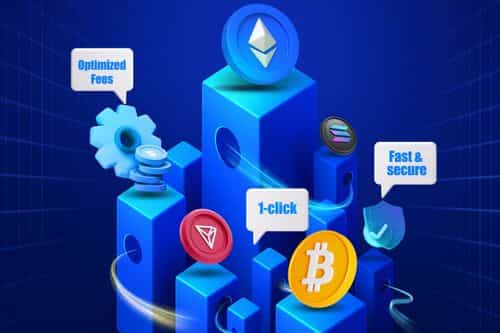
What is the Best DEX Aggregator?
The decentralized finance (DeFi) ecosystem has experienced massive growth over recent years, and at the heart of this evolution lies the Decentralized Exchange (Dex) Aggregator. These platforms aggregate liquidity from various DEXs, offering traders the best possible prices and minimizing slippage. In this article, we’ll dive into what makes the best Dex aggregator, exploring its core features, performance metrics, and why it’s indispensable in today’s DeFi landscape.

On-Chain Activity and DeFi Growth
The explosive growth of decentralized finance (DeFi) is fundamentally tied to on-chain activity, the measurable actions and interactions occurring on blockchain networks. Unlike traditional financial systems, where data is siloed and opaque, blockchain transparency provides an unprecedented window into market behaviour, user adoption, and protocol health. Every transaction, smart contract interaction, and wallet movement tells a story about where DeFi is thriving and where innovation is needed most. This deep dive examines how on-chain metrics serve as the pulse of DeFi ecosystems. We'll reveal how real-time analytics are shaping the next phase of decentralized finance expansion.

Exploring Cross-Chain Popularity in DeFi
DeFi is on the brink of transforming finance, but its fragmented landscape threatens to keep this revolution in silos, until cross-chain technology steps in to unify it all. However, as blockchain ecosystems multiply, each with their unique standards and token formats, DeFi faces its biggest bottleneck: fragmentation. Value, liquidity, and innovation are locked within isolated chains, creating a disjointed user experience. Enter cross-chain transactions, the mechanism by which assets and data are transferred between disparate blockchain networks, creating a truly unified financial system. This article delves deep into why cross-chain functionality has become indispensable, the key drivers accelerating its adoption, the risks and technical constraints involved, and how emerging innovations are shaping the next phase of DeFi.

Cross-Chain Aggregators: Gas Fees and Efficiency
Imagine trying to transfer digital assets but feeling like you're stuck in a labyrinth of endless tolls and confusing shortcuts. In today's blockchain ecosystem, fragmented across a multitude of Layer‑1 and Layer‑2 networks, users often face exorbitant gas fees and convoluted transfer processes. Enter cross‑chain aggregators: ingenious solutions that unite bridges and decentralized exchanges (DEXs) to clear the path for smoother, more efficient transactions. In this article, we explore their inner workings, benefits, challenges, and the exciting future potential they hold.

Top DEX Platforms for Crypto Traders
Today’s elite crypto traders are no longer just participants in DeFi, they are architects of complex strategies demanding unmatched speed, control, and precision. Unlike casual users, they seek out platforms that offer not only low slippage and high liquidity but also intelligent routing, customizable AMM models, and advanced analytics. The decentralized exchange (DEX) landscape has matured significantly, with several standout platforms emerging as essential tools for pros. This article delves into five of the most powerful DEXs that cater specifically to the needs of high-volume, high-skill crypto traders, helping them unlock efficiencies, reduce fees, and execute complex trades.

Top 7 Cross-Chain Aggregators Use cases
In the rapidly evolving world of decentralized finance (DeFi) and blockchain technology, the ability to move assets and data seamlessly across multiple networks has become a critical challenge. Platforms like Rango Exchange aggregate cross-chain liquidity and bridges to let anyone swap any asset to any other across 70+ chains in one guided route, demonstrating how cross-chain aggregation can simplify real-world financial flows. Enter cross-chain aggregators, innovative platforms designed to bridge various blockchains and optimize user experiences by aggregating liquidity, trades, and yields from diverse ecosystems. This article explores the top 7 use cases of cross-chain aggregators within DeFi and highlights their expanding role beyond finance. Understanding these use cases is essential for investors, developers, and enthusiasts seeking to maximize the benefits of multi-chain interoperability.

Mistakes to Avoid Using a DEX Aggregator
Navigating the world of decentralized exchanges (DEXs) can feel like a thrilling treasure hunt, but without the right tools, it’s easy to end up empty-handed.Decentralized Exchange (DEX) aggregators simplify trading in the decentralized finance (DeFi) world. They scan multiple decentralized exchanges and protocols to offer you the best price, routing, and token swap execution. Yet, many users misuse these platforms or overlook key steps, which can result in failed transactions, excessive fees, or even lost funds. This article breaks down the most common DEX aggregator mistakes and offers guidance on how to sidestep them for more secure and optimized trading experiences.

DEX For Beginners
In the evolving world of cryptocurrency, decentralized exchanges (DEXs) offer a powerful alternative to traditional platforms by eliminating intermediaries and giving users greater control, transparency, and privacy. As centralized exchanges face growing concerns over security breaches, regulatory scrutiny, and custodial risks, DEXs provide a trustless solution built on blockchain technology. High-profile collapses like Mt. Gox and FTX have exposed the dangers of relying on centralized custodians, accelerating the rise of DEXs that let users trade while keeping control of their private keys. Whether you're new to crypto or shifting from centralized platforms, this beginner’s guide will explain how DEXs work, their advantages and drawbacks, real-world uses, and how to use them safely.

DeFi vs. CeFi
Cryptocurrencies have unleashed a financial revolution, empowering individuals and challenging traditional financial systems. However, with mass adoption on the horizon, the debate between decentralization and centralized control is intensifying. As regulators step in, the future of crypto will be shaped by how well freedom and oversight are balanced. Let’s explore how crypto policy has evolved and where it may lead.

DEX Aggregators in DeFi
As decentralized finance (DeFi) continues to reshape the financial landscape, one challenge remains constant: navigating the vast ecosystem of decentralized exchanges (DEXs) to get the best value for your trades. With hundreds of DEX platforms operating across multiple blockchains, it’s easy for users, especially newcomers, to feel overwhelmed and even discouraged from participating.

Future of DeFi with cross-chain aggregators
As decentralized finance (DeFi) grows, traders increasingly need access to assets and liquidity across multiple blockchains. Gone are the days when Ethereum-based tokens were enough. Now, with plenties of chains — from Solana and Avalanche to Cosmos and Ton — users expect excellent interoperability. Nowadays, cross-chain DEX aggregators are platforms designed to unify fragmented liquidity and make cross-chain trading effortless. In this article, we’ll analyze what these aggregators involve, how they work, why they matter, and how they’re shaping the future of decentralized trading.

DeFi risks and benefits
Decentralized Finance (DeFi) is removing traditional financial intermediaries, such as banks, and replacing them with decentralized blockchain-based protocols. This revolutionary shift offers a financial ecosystem that enables users to trade, lend, borrow, and earn yields without the need for centralized authorities. DeFi promotes accessibility, and transparency for all, ensuring financial services are available to anyone with an internet connection.

Cross-chain DEX aggregator comprehensive guide
Exchanging crypto assets between different blockchains with the best prices and lowest fees can be challenging. This process is known as cross-chain trading, and it’s a critical function that needs users to interact with decentralized applications (dApps) across multiple blockchain ecosystems. When it comes to reviewing different DEXes and bridges to perform a specific cross chain trade, users should thoroughlly review different protocols and decide among them. In some cases multiple transactions are needed, DEX + bridge + DEX. Rango Exchange, a No KYC decentralized exchange (DEX) aggregator, simplifies this process by aggregating multiple transactions into a single one through Rango smart contract; providing competitive swap rates and access to vast deep liquidity sources across the DeFi.

DeFi crypto trading: a beginner’s guide to get started
Trading assets between different blockchains is a vital task . Whether you're looking to bridge ETH from Ethereum to Base or another chain, understanding how to do so efficiently and securely can unlock new opportunities. This beginner’s guide will introduce you to ETH cross-chain trading (bridging), with a focus on the Rango Exchange, a decentralized exchange (DEX) aggregator that offers competitive bridging swap rates and low fees.
Liquidity Life
Understand automated market makers (AMMs), liquidity pools, and how to assess and manage risk in the ever-evolving DeFi space.

Top 5 AMMs Platforms for Crypto Trading in 2025
On-chain swapping in 2025 is rarely executed as a “single swap” in the old sense. Price discovery is often performed by routers, DEX aggregators, and cross-chain aggregators, which can turn one intent into several contract calls and approvals. Under typical conditions, this complexity is mostly hidden; under congestion or volatility, it becomes painfully visible through quote drift, partial fills, and confusing previews. It was repeatedly observed that small procedural habits, rather than protocol preference, tend to reduce error rates. The full article below is a must-read, because the practical distinctions become clearer when the full workflow is considered.
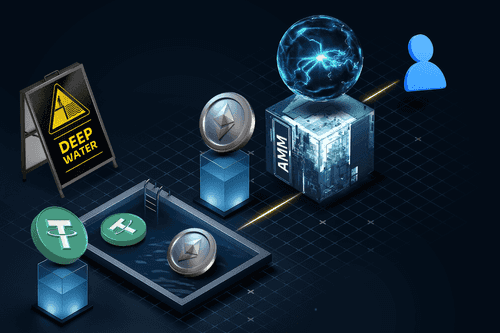
Liquidity Pools Influencing the Success of AMMs
Automated market makers (AMMs) have moved from experimental tools to core market infrastructure for many decentralized exchanges, and their behavior is increasingly shaped by how liquidity pools are configured and used. To understand how liquidity pools work, attention has to be placed on the mechanics of pricing, incentives, and risk rather than on branding or narratives. As liquidity pools in AMMs have matured, the influence of liquidity pools on the success of AMMs has become more measurable in terms of volume, depth, and stability. For that reason, a closer reading of the full article below is encouraged before capital is committed or strategies are designed.
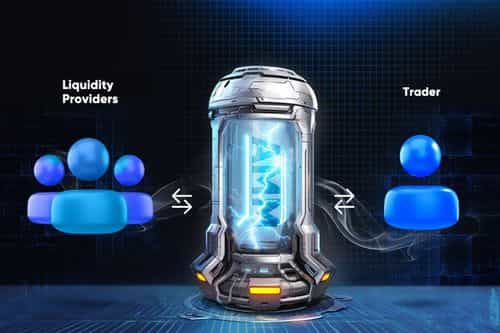
Use Automated Market Makers for Crypto Investments
AMMs turn liquidity into code, and code into edge. This guide demystifies how pricing curves, from constant-product (x·y = k) to stableswap hybrids, shape execution quality, slippage, and fee capture; where concentrated liquidity converts tight ranges into superior capital efficiency; and why impermanent loss emerges as order flow continuously rebalances your inventory. You’ll learn to choose fee tiers by volatility, route across pools for best price, and size ranges with engineer-level precision, then monitor, rebalance, and harvest to turn volatility into durable yield. Now, go and read the article below.

Top 10 DEX Benefits
As blockchain technology and decentralised finance (DeFi) develop, decentralised exchanges (DEXs) are rapidly becoming popular alternatives to centralised exchanges. These platforms enable peer-to-peer trading of cryptocurrencies, giving users greater control, improved security, and more financial freedom. This article will explore the top 10 benefits of using a decentralized exchange for cryptocurrency trading.

Why AMMs? Key to DeFi Ecosystem
In the rapidly evolving world of decentralized finance, Automated Market Makers (AMMs) play a pivotal role in enabling seamless, trustless trading without traditional order books. They underpin decentralized exchanges by allowing anyone to become a liquidity provider, while facilitating 24/7 trading across tokens. This article dives into how AMMs power DeFi, exploring liquidity pools, trading efficiency, models and risks, to explain why they’re essential for DeFi ecosystems.

DeFi Crypto, Future of Global Payments
Few sectors have experienced as profound a transformation from emerging technologies as finance, with Decentralized Finance (DeFi) leading the charge. Decentralized Finance (DeFi), driven by blockchain technology, has rapidly emerged as a compelling alternative to traditional financial systems. It removes the need for central authorities, enabling a more open, accessible, and efficient financial ecosystem. As global commerce becomes more integrated, the pressing question is: Can DeFi become the standard for global payments? This article explores that possibility by examining the role of DeFi in payments, its benefits, challenges, and how it may reshape the international financial landscape.

Impact of AMMS on Crypto Exchange Fees
As the crypto landscape matures, so too do the technologies that power it. One of the most pivotal innovations in recent years is the rise of Automated Market Makers (AMMs). These decentralized exchange protocols have redefined how assets are traded and how fees are structured. While centralized exchanges have traditionally dominated, AMMs now offer a compelling, transparent alternative that shifts fee dynamics and redistributes economic incentives. This article explores how AMMs work, how they differ from centralized models in terms of fees, the benefits and risks they introduce, and strategies traders can employ to reduce costs in this evolving ecosystem.

Global Crypto Policies & DEXs
The cryptocurrency world is evolving rapidly, and global crypto regulations are now becoming a defining factor in shaping the future of decentralized finance (DeFi). Among the innovations facing these changes are decentralized exchanges (DEXs), which have traditionally offered peer-to-peer trading without the need for intermediaries. However, the increased pressure from governments and international bodies means that understanding how global crypto policies impact DEXs is crucial for anyone engaged in crypto trading today.

AMMs' Challenges and Limitations
In the ever-evolving world of decentralized finance (DeFi), Automated Market Makers (AMMs) have emerged as a revolutionary innovation. By eliminating the need for traditional intermediaries and enabling peer-to-peer trading, AMMs have dramatically expanded access to liquidity and financial services. However, like any transformative technology, AMMs come with their own set of challenges and limitations. Understanding these pain points is crucial for users, liquidity providers, and developers striving to enhance the future of DeFi ecosystems. In this article, we dive deep into the key challenges AMMs face, explore their inherent limitations, and discuss how the industry is working to overcome them.

AMMs vs. Order Books
In recent years, decentralized exchanges (DEXs) have shifted from experimental interfaces to core infrastructure in decentralized finance (DeFi). As this shift has occurred, the quiet but decisive choice between automated market makers (AMMs) and order book exchanges has been placed at the center of protocol design. It may be tempting to assume that one model will simply replace the other, yet a different pattern has been observed: both are evolving, overlapping, and being combined in hybrid designs. The full article below can be read as a guide to how this amm vs order book landscape is actually playing out in practice. /

AMMs Compliance with Global Crypto Policies
Cryptocurrency has changed financial transactions, a new era of decentralized finance (DeFi). One of the key innovations behind DeFi’s success is the Automated Market Maker (AMM), a protocol that enables users to trade digital assets without relying on centralized exchanges. However, with the increasing scrutiny on cryptocurrency by governments and regulatory bodies worldwide, ensuring compliance with global crypto policies has become a priority for many DeFi platforms. In this article, we will explore the role of AMMs in compliance with these regulatory frameworks and the challenges they face in doing so.

Evolution of Decentralized Exchanges
Decentralized exchanges (DEXs) have come a long way from their humble beginnings to becoming a pillar of the cryptocurrency ecosystem. Unlike centralized exchanges (CEXs), DEXs operate without intermediaries, enabling direct peer-to-peer (P2P) transactions while enhancing security and user control. Over the years, these platforms have evolved significantly, addressing early limitations and integrating cutting-edge innovations. This article explores the history, development, and future of DEXs, highlighting key milestones and emerging trends shaping the decentralized trading landscape.
Frequently asked questions
Check out most commonly asked questions, addressed based on community needs. Can't find what you are looking for?
Contact us, our friendly support helps!
What is decentralized finance (DeFi)?
Decentralized Finance (DeFi) refers to financial services built on blockchain networks, particularly Ethereum, that operate without intermediaries like banks. It enables activities such as lending, borrowing, and trading directly between users and across blockchains through smart contracts.
How is DeFi different from traditional banking?
DeFi operates on decentralized platforms and doesn’t rely on centralized institutions, such as banks, to process transactions or hold funds. This reduces reliance on intermediaries, increases accessibility and trust, and often lowers fees compared to traditional banking systems.
Are DeFi platforms safe to use?
While DeFi platforms offer innovative services, users should ensure they’re using reputable platforms, practice strong security, and be aware of the scam messages, emails and links.
